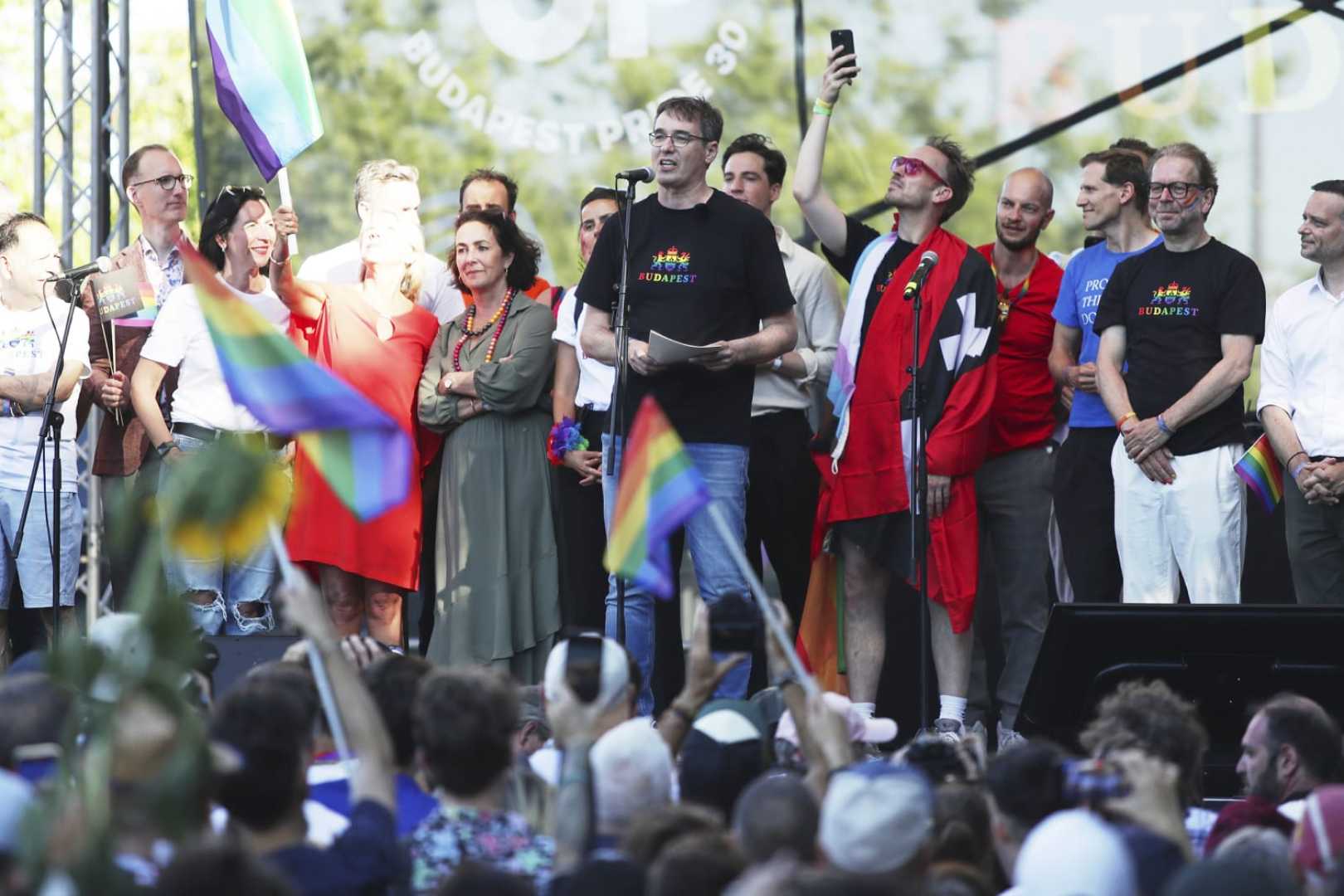News
Budapest Mayor Questioned Over Banned LGBTQ+ Pride March

BUDAPEST, Hungary — Mayor Gergely Karácsony was questioned by police Friday as a suspect in organizing a banned LGBTQ+ Pride march in the city. The event occurred on June 28, despite warnings from Prime Minister Viktor Orbán and his nationalist government, which passed legislation earlier this year prohibiting such gatherings.
Organizers claimed a record 300,000 people participated in the march, which escalated into an anti-government protest. Dressed in a rainbow shirt featuring the city’s coat of arms, Karácsony told supporters outside the National Bureau of Investigation, “Neither freedom nor love can be banned in Budapest.” If convicted, he could face up to a year in prison for encouraging the participation in the illegal event.
Karácsony addressed the crowd of around 200 after over an hour of questioning, dismissing the accusations as unfounded. “I will lodge a complaint against it,” he said, asserting that police cannot legally ban a municipal event. The march, the largest of its kind in Hungary’s history, occurred after the government imposed strict laws against public demonstrations promoting homosexuality, citing child protection.
In March, the ruling Fidesz party enacted controversial laws restricting Pride events and enabled police to use facial recognition technology to identify attendees. While authorities initially threatened heavy fines, they later announced they would not prosecute participants but remain focused on the organizers of the march.
Viktória Radványi, president of Budapest Pride, praised Karácsony for “showing courage and strong morals.” She emphasized that being a mayor means defending citizens’ fundamental rights against attacks. Karácsony reaffirmed his beliefs, asserting that the government’s grip was waning, stating, “This force is weakened now and no longer has any effect over people’s thinking.”
As Karácsony concluded his remarks, he urged supporters to look forward to the national elections next spring, emphasizing the need for a country where freedom is for everyone, not just those in power. “Either we are all free together, or none of us are,” he declared.












